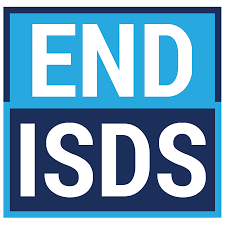On 8 March 2019, seven United Nations (UN) Special Procedures offices sent a letter (OL KWT 1/2019) to the Kuwaiti government detailing serious concerns with business practices and the lack of care for human rights. The communication was sent by the Working Group on the issue of human rights and transnational corporations and other business enterprises; the Special Rapporteur on the right to development; the Special Rapporteur on the issue of human rights obligations relating to the enjoyment of a safe, clean, healthy and sustainable environment; the Independent Expert on the effects of foreign debt and other related international financial obligations of States on the full enjoyment of all human rights, particularly economic, social and cultural rights; the Special Rapporteur on the rights of indigenous peoples; the Independent Expert on the promotion of a democratic and equitable international order and the Special Rapporteur on the human rights to safe drinking water and sanitation. Throughout the letter, the UN experts highlighted several issues that they identified within the Investor-State Dispute Settlement (ISDS) that needed to be reformed.
The original purpose of the ISDS was to allow investors to file lawsuits against countries in which they had invested but felt that their investment was mismanaged. Through this system, the idea was that investors would feel more comfortable about investing internationally. However, investors have begun to abuse this system by forcing countries to hold back social and environmental protections that would raise costs of business with the threat of lawsuits that would cost millions of dollars. The communication sent by UN experts highlighted that similar issues are present within Kuwait and need to be addressed immediately.
The communication also identified several other problematic areas with the ISDS. One problematic area that was identified is that there is a significant lack of consistency and accuracy in the decisions made by ISDS tribunals. The experts found that these tribunals are highly inconsistent, if not outright ignorant, when it comes to human right standards and pursuing business ventures. To counteract this behavior, the experts suggested that these tribunals should “systematically and consistently apply international human rights, labour and environmental laws and international standards related to indigenous peoples’ rights” when making their decisions.
Another problematic aspect of ISDS proceedings is that there are often exponential costs when undergoing a trail with businesses. Typically these businesses will have millions in assets when expanding abroad and can use this economic power as a deterrent against countries that wish to pursue better environmental or human rights. Very few countries are willing to risk challenging these companies because of the significant amount of financial costs and risks it would take to undergo one of these trials or lose the potential investments.
At the end of their communication, the UN experts organized two concrete solutions that the Kuwaiti government, and other countries in similar situations, should implement to help improve the human rights situation in relation to business practices. First, the experts implored the Kuwaiti government to implement third-party representatives for various business negotiations. By incorporating these third parties into the negotiation processes, the interests and well-being of the affected people will be better heard, understood, and taken into account by both the government and the businesses.
The UN experts also called for the creation of a system for individuals negatively impacted by business operations that allows them to file claims against companies without fear of backlash so they can receive proper compensation. The experts suggested that this new system would work in tandem with how businesses can sue governments. By allowing a complaints mechanism for those affected by the business dealings, Kuwait will be able to further promote the human rights situation, as individuals will now be able to voice their concerns in the initial negotiations and also voice their grievances if the terms of the contract are infringed.
Despite this letter and its requests, the Kuwaiti government has ultimately elected to not respond to the UN and its concerns. By neglecting to respond, businesses will continue to use the ISDS system to force the Kuwaiti government to ignore human right standards for the sake of economic advancement. It is imperative Kuwait listens to the UN experts’ recommendations in order to take concrete measures to improve the human rights situation in the country.
Ethan Cook is an Advocacy Intern at ADHRB





